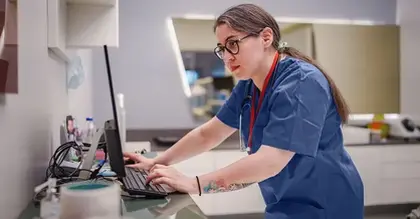Drug Detail:Thiothixene (Thiothixene [ thye-oh-thix-een ])
Drug Class: Thioxanthenes
Usual Adult Dose for Schizophrenia
Mild Conditions:
- Initial dose: 2 mg orally 3 times a day
- Maintenance dose: 15 mg orally per day
Severe Conditions:
- Initial dose: 5 mg orally 2 times a day
- Maintenance dose: 20 to 30 mg orally per day
- Maximum dose: 60 mg orally per day
Comments:
- Dosing should be individually adjusted depending on the chronicity and severity of symptoms.
- In general, small doses should be used initially and gradually increased to the optimal effective level based on patient response.
- Some patients have been successfully maintained on once-a-day therapy.
Use: Schizophrenia
Usual Pediatric Dose for Schizophrenia
Age 12 years and older:
Mild Conditions:
- Initial dose: 2 mg orally 3 times a day
- Maintenance dose: 15 mg orally per day
Severe Conditions:
- Initial dose: 5 mg orally 2 times a day
- Maintenance dose: 20 to 30 mg orally per day
- Maximum dose: 60 mg orally per day
Comments:
- Dosing should be individually adjusted depending on the chronicity and severity of symptoms.
- In general, small doses should be used initially and gradually increased to the optimal effective level based on patient response.
- Some patients have been successfully maintained on once-a-day therapy.
Use: Schizophrenia
Renal Dose Adjustments
Data not available.
Liver Dose Adjustments
Data not available.
Precautions
US BOXED WARNING:
Analyses of 17 placebo-controlled trials, largely in patients taking atypical antipsychotic drugs, revealed elderly patients with dementia-related psychosis treated with antipsychotic drugs are at an increased (between 1.6 to 1.7 times) risk of death. Although the causes of death varied, most appeared to be either cardiovascular (e.g., heart failure, sudden death) or infectious (e.g., pneumonia). Observational studies suggest that treatment with conventional antipsychotic drugs may increase mortality as well, although it is not clear if these findings can be attributed to the drug treatment or to some patient characteristic(s). This drug is not approved to treat dementia-related psychosis.
Safety and efficacy have not been established in patients younger than 12 years.
Consult WARNINGS section for additional precautions.
Dialysis
Data not available; however, peritoneal and hemodialysis are known to be of little value in phenothiazine intoxication.
Other Comments
General:
- This drug has not been evaluated in the management of behavioral complications in patients with intellectual disability.
- In the event of overdosage, early gastric lavage is helpful; maintain an open airway since involvement of the extrapyramidal system may produce dysphagia and respiratory difficulty; use the standard measures for managing circulatory shock (IV fluids and/or vasoconstrictors norepinephrine and phenylephrine) if hypotension occurs.
Patient Advice:
- This drug may cause side effects that can affect your ability to perform certain activities; avoid driving and activities such as operating machinery until you know how this drug affects you.
- Do not drink alcohol while taking this drug.
- Avoid unnecessary exposure to sunlight and wear sunblock or sunscreen while taking this drug.




